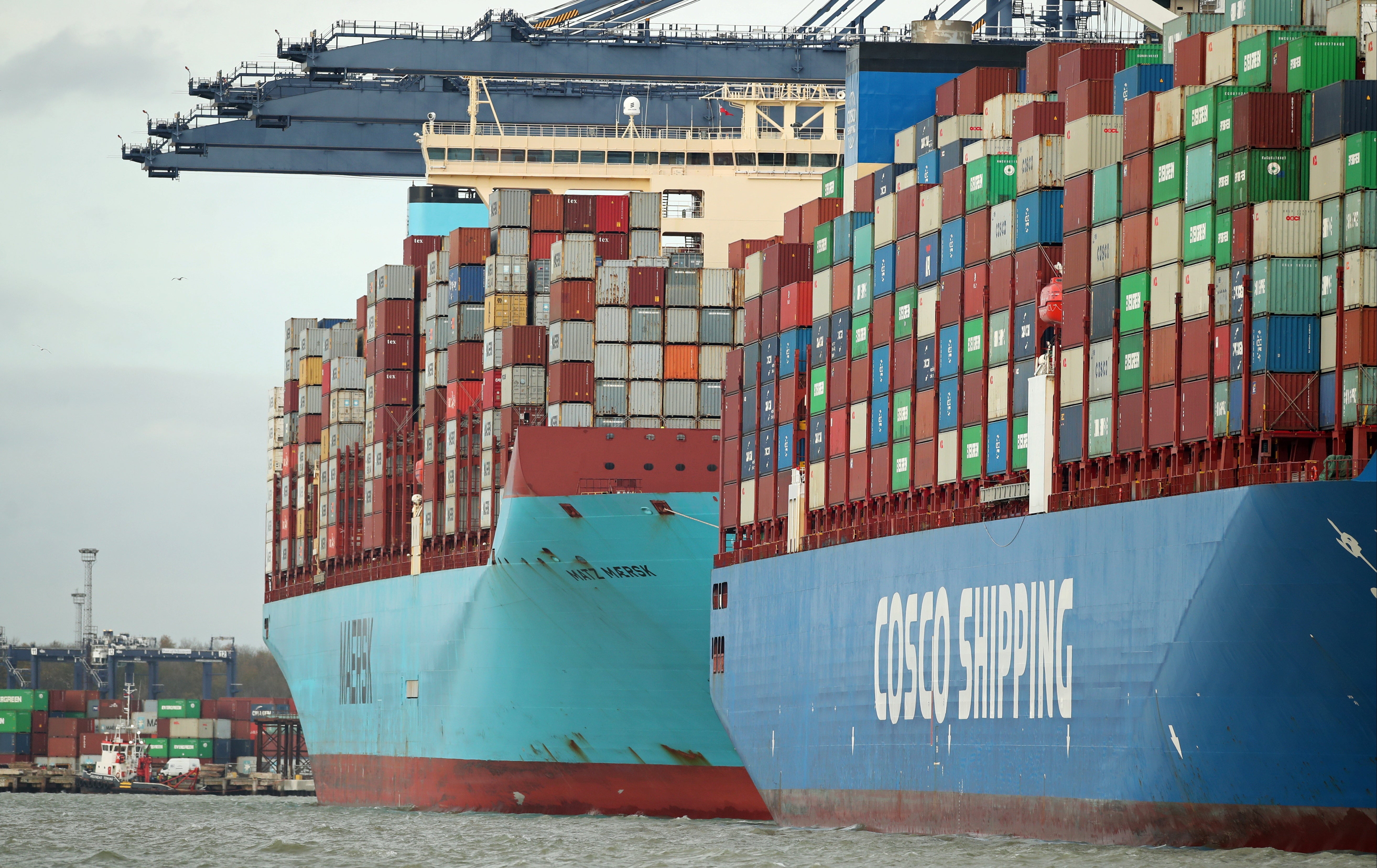Ports appeal for help amid congestion caused by Covid and Brexit
Spike in imports has led to bottlenecks of containers carrying supplies for shops and factories

Britain’s ports and hauliers have issued an appeal for help from the government amid scenes of congestion that has delayed deliveries of food, supplies for factories, and Christmas presents.
A spike in imports caused by the Covid-19 pandemic and stockpiling ahead of the UK’s transition to Brexit has resulted in bottlenecks at container ports.
Car manufacturer Honda said last night that it has temporarily halted production at its Swindon factory because of “transport-related parts delays”.
In a joint letter to the transport secretary, Grant Shapps, leaders of organisations including the UK Major Ports Group, Logistics UK and the UK Chamber of Shipping warned that problems could persist “for some months”, increasing the potential for disruption during the vital first weeks of 2021 following the transition out of the EU’s single market and customs union on 31 December.
While Covid has disrupted container traffic around the world, the groups said that issues specific to the UK – such as Brexit – have created particular problems.
“UK factors such as the imminent end of the EU transition period may well bring disruption, at least in the short term – an area where more urgent work is required and where container movement has until very recently received little attention in the government’s planning,” they said.
Felixstowe, which handles 40 per cent of Britain’s container traffic, has been experiencing backlogs of containers for some weeks and it is now feared that similar issues are developing at other container ports, such as Southampton and London Gateway.
In their letter to Mr Shapps – also signed by the British Ports Association, the British International Freight Association, the Cold Chain Federation and the Rail Freight Group – the logistics chiefs said that “unprecedented volatility” caused by Covid lockdowns and increasing consumer use of e-commerce was causing significant congestion in ports from Sydney to Los Angeles.
“Local factors in the UK add additional complexity,” they said.
“And although the logistics sectors have remained highly resilient and operational throughout the pandemic, there is inevitably an influence.”
They warned: “Although we are hopeful that the current peak of port congestion has passed, high volumes remain and could persist for some months, running into the period of the end of the EU transition.
“Therefore challenges remain. The current situation has arisen in part from imbalances that accumulated over months. Reversing this accumulation is not an overnight task.”
The letter called on the the government not to be “complacent”, and urged it to provide “sensible flexibilities and easements” around the movement of containers at ports and road haulage.
These could include better access for freight to rail, more flexible hours for road haulage, and easing planning rules around warehouses.
The Department for Transport said partners across the government are working closely with the freight industry to resolve challenges in the global container system.
The chief executive of UK Major Ports Group, Tim Morris, said: “The Covid-19 pandemic has caused unprecedented volatility in global supply chains. The impact is being felt across the world, including here in the UK.
“The situation at the UK's ports is improving following commitment of extra resources, working closely with customers, and ports across the UK taking on more traffic.
“However, we are not complacent. Improvements at UK ports will take time to work through supply chains, they remain very busy and the underlying problem is global.”
The shadow business secretary, Ed Miliband, warned that the current problems may be only “the tip of the iceberg”.
“While there are pressures caused by Covid all over the world, no other country is facing the kind of uncertainty we are around the end of the transition period,” he said.
“With businesses still not knowing whether there is going to be a deal, and the exact nature of any deal, it is throwing massive uncertainty into their decision-making.
“The government must take responsibility for having left the country in this position, not keep putting the burden of blame on businesses.
“Car production halting, Christmas presents possibly going undelivered, and food supplies being thrown out are terrible for businesses across our country.
“There is a real worry that unless the government listens and urgently acts, the disruption today will just be the tip of the iceberg.”
A Department for Transport spokesperson said: “This is not a problem unique to the UK, with ports around the globe experiencing similar container capacity issues. The department and partners across government are working closely with the freight industry to work through the challenges some of our ports are facing.
“Resilient supply chains and free-flowing freight are integral to the UK economy and we will do everything we can to resolve the situation as quickly as possible.”




Join our commenting forum
Join thought-provoking conversations, follow other Independent readers and see their replies
0Comments